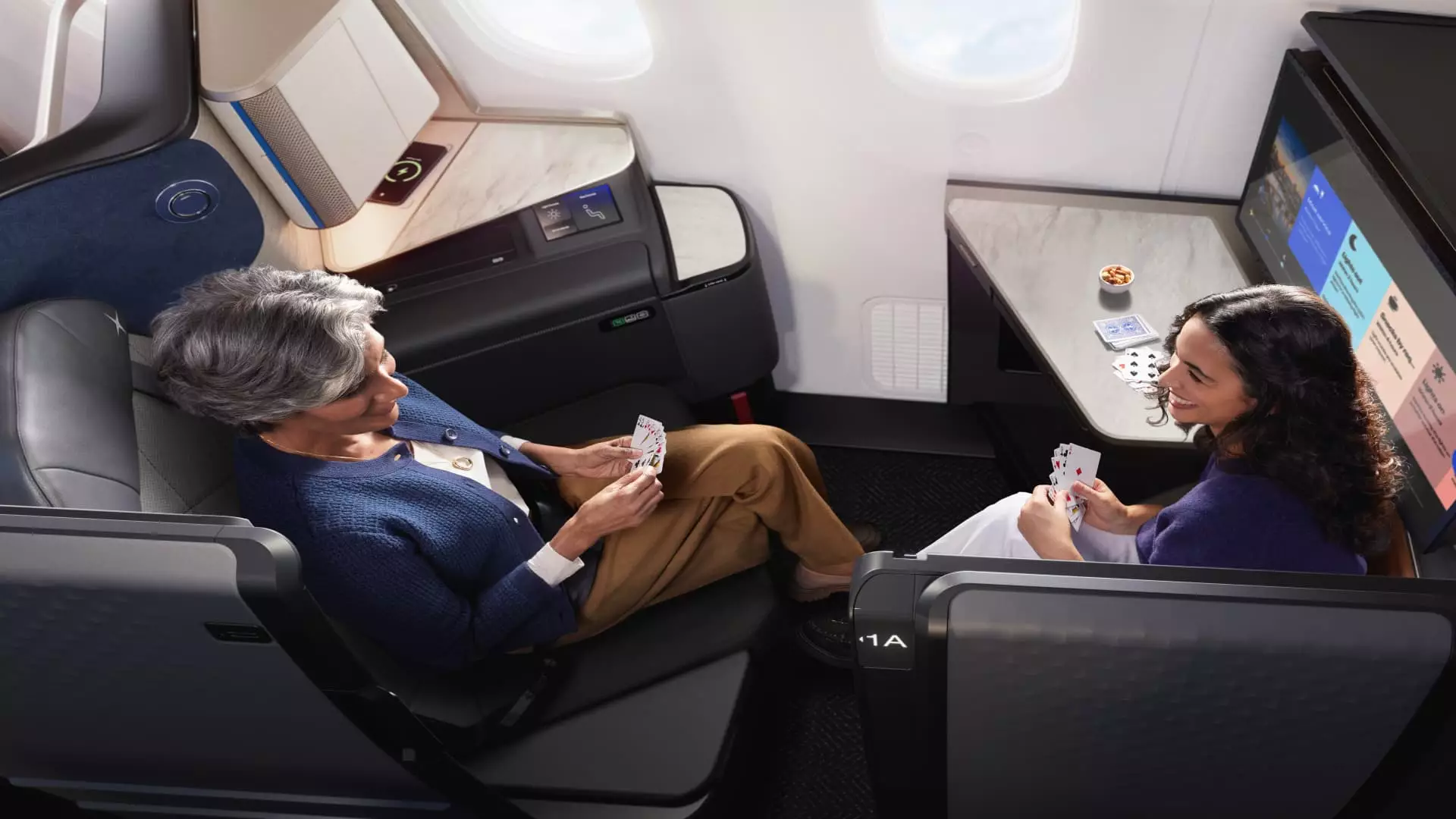7 Disturbing Trends in the Battle for Airline Business-Class Supremacy

Air travel has long been a platform of luxury, but as competition heats up among U.S. airlines, the ongoing race for superior business-class offerings reveals more about consumer behavior and industry trends than meets the eye. With lavish amenities becoming commonplace, there are uncomfortable truths and especially troubling trends that emerge from the relentless push for profits in a volatile market.
The Devaluation of Luxury
As American Airlines prepares to launch its upgraded business-class suites, each boasting modern features like sliding doors and wireless charging pads, the discrepancy between luxury and affordability poses unsettling questions. A suite ticket from Philadelphia to London costing over $5,700 illustrates a growing two-tier system in an industry still haunted by the ghosts of air travel’s Golden Age. While the airline industry was once a signifier of prestige and elegance, it’s swiftly turning into a distinction of unyielding elitism, relegating average consumers to a world where being “economy class” is synonymous with enduring mediocrity.
Race for luxury in the skies often translates to elevated costs, not just for premium tickets, but also as a broader cultural shift within air travel towards the rich getting richer. It’s not just about traveling “business class” anymore; it’s about how much you’re willing to spend to evade the experience of a cramped economy seat. This transformation is worrisome, skewing the vision of air travel from an essential service to a mere status symbol.
The Unrelenting Pursuit of Profit
Airlines are eyeing premium passengers as a way to counteract the razor-thin margins that plague the industry. American Airlines and United Airlines have both been trying to extract revenue from wealthier travelers by enhancing their business-class offerings while neglecting the economy experience. These movements are not merely strategic; they shine a light on an industry desperate for profitability. With Delta Air Lines successfully leading the pack, others seem locked in a frantic scramble to catch up, intrigued by the allure of increased revenue from these amenities.
It is perplexing how the airlines have done little to address issues like service delays and unpredictable travel conditions while instead focusing on embellishing their business cabins with luxury items so trivial when compared to the overall travel experience. This misplaced focus on “soft products”—noisy headphones, luxe bedding, and gourmet meals—highlights a broader misunderstanding of customer priorities. True service excellence goes beyond offering plush comforts; it encompasses reliability and consistency, sectors that have seen alarming declines even as amenities grow.
Economic Divides and Consumer Psychology
The segmentation of airline classes fosters a troubling societal narrative around travel. The trend toward premium seating options underscores a larger takeaway: the middle class is increasingly priced out of enjoyable travel experiences. Corporations that once tolerated investments in “first-class” tickets now readily purchase business-class seats, affirming that economic pressures are reshaping purchasing behaviors.
This shift is more than a corporate maneuver; it reflects a psychological divide where the experience of air travel becomes warped into a two-tiered system contingent on wealth. The elite business-class experience stands in stark contrast to domestic economy passengers crammed into aircraft, often with no meal options and indifferent service.
While some may argue this creates an incentive for airlines to improve economy offerings, the reality is that it may be more profitable to continue luring wealthier travelers into heightened levels of luxury rather than spending capital to improve the experience for the masses. The outcome is a growing expanse between those who can afford to escape cramped quarters and those who remain tethered to the discomfort of standard coach, broadening the gap in an age where equitable access should ideally prevail.
Underwhelming Responses to Customer Expectations
Despite airlines boasting upgrades to dining experiences and visual entertainment, the conversation around customer satisfaction is barebones at best. High-end additions such as “Amuse Bouche” caviars and lavish meal settings, though exciting, gloss over the fundamental need for improved service reliability. In a post-pandemic landscape, where the experience of travel remains stressful for both leisure and business travelers, sinking airlines into ambiguity surrounding their service could prove detrimental.
The reliance on trends like luxury and premium offerings distracts from addressing the core issues plaguing the flying experience and consumers are beginning to take notice. A well-placed investment in addressing operational deficiencies would do wonders for customer sentiment and loyalty. Companies should be keenly aware that an ostentatious display of luxury can only maintain the façade for so long if the underlying infrastructure remains bland and malfunctioning.
Airlines must recalibrate their focus: highs of extravagant experiences should not overshadow declines in service quality or the constant oscillation of ticket prices. The quest for premium dominance, while seemingly lucrative, may trigger a cascade of consequences that undermine loyalty and trust among a mostly disenchanted public.
In the end, the fight for supremacy in the business-class arena unveils unsettling truths; it paints a stark picture of a society where travel experiences come with a hefty price tag and where the race for profit overshadows the essential human desire for reliable and enjoyable air travel. The outcomes of this competition could very well shape the future of flying, but one can only hope that it encourages a renaissance of balance and fairness within the airline landscape.





